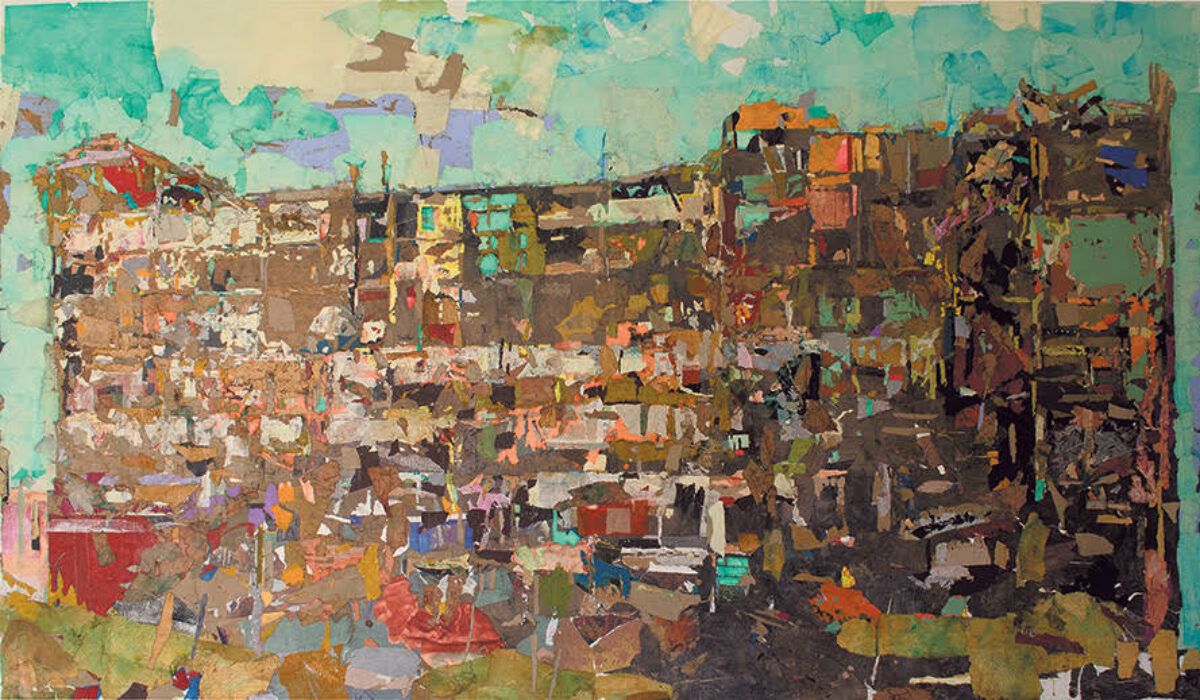It seems that in Turkey the only issue on which all political parties and all segments of the society agree is “sending Syrians back home”. However, there are dozens of question marks lurking behind this “they must return” demand. One such question is “to where?” There are still serious security problems in many parts of Syria; economic and social destruction caused by the war continues, and most importantly, the conflicts between the parties have not come to an end. Both in terms of humanitarian aspects and politically, it is impossible to relocate Syrian refugees to Damascus and its environs, where it is forbidden to raise any critical voice under Assad’s oppressive and corrupt regime. That leaves the northern regions of Syria as a possible place of return. But there, too, is a fragmented and conflict-ridden environment with at least three separate ruling powers. In Idlib, Hayat Tahrir al-Sham (HTS), considered a “terrorist organization” by many countries, including Turkey, holds the region under control. Millions of people are already struggling to survive in very difficult conditions in Idlib, making the city a potentially refugee-producing context. In Afrin, Azaz and Jarablus, which came under Turkish control as a result of military operations, armed forces (formerly known as the Free Syrian Army, later renamed the Syrian National Army) are hosting large and small anti-regime groups. To the east of this region lies the PYD and its armed wing, the YPG, which Turkey listed as a terrorist organization. Although Turkey’s relations with the Kurds in Syria have dramatically deteriorated lately, PYD spokesman Salih Muslim had visited Turkey many times until 2014 and warm relations had been established. In short, Turkey’s changing priorities in Syria are constantly transforming its relations with regional actors.
Recent events signal the beginning of a new era for Syrian refugees. The Turkish government, which adopted an open-door policy in the early years of the war in Syria and now hosts nearly 4 million Syrians, has openly stated that one million Syrians should return to their country. The Ministry of Interior implement various policies –some of them quite harsh– to ensure the return of Syrians. In September 2022, the Ministry announced that a total of 521.000 Syrians returned. Briquette houses to be built by the Turkish government in northern Syria was also promoted as a project to assist the return process. However, the question of return is a very complex and multidimensional one, especially politically. A case in point came to light in August, when Foreign Minister Çavuşoğlu stated that negotiations with the Assad regime could begin, and that the Syrian opposition should seek reconciliation with the Assad government. Turkey’s signals of rapprochement with the Assad government were immediately countered with violent protests in Turkish-controlled areas. On top of all these, in mid-October, HTS, which held control of Idlib, launched attacks against the Turkish-backed Syrian National Army in an attempt to expand into Afrin, the site of Operation Olive Branch.
In the midst of this chaos, we talked with Kristin Helberg, a German researcher and journalist who lived in Syria for many years, for an in-depth analysis of the situation in Syria, especially of the issue of return. Helberg described the situation in Syria as “a crisis simmering on low heat”. We discussed the Syrian diaspora and the Syrian opposition, the role of international actors such as the UN and the EU in the conflict in Syria, whether the return of Syrian refugees in Turkey is possible, and how the actors inside Syria, especially Assad, see the question of return and the future of Syria.
Let’s start with the Syrian diaspora, on which you have done a lot of research. What has been the role of the Syrian diaspora during the uprising against the Syrian regime?
Kristin Helberg: First of all, we have to make a difference between Syrian diaspora and the exiled opposition. If we define diaspora as the sum of Syrians living abroad, then this is obviously different than what we call the Syrian diaspora opposition, such as the National Coalition, the Itilaf, based in Turkey. When I talk about diaspora, I use the modern definition which presupposes a minimum of activity, engagement and initiative. So, this means that a diaspora comes into being only by organizing itself, by presenting its interests and by spelling out its goals. In that sense, we have two parts of the Syrian diaspora. The “old diaspora”, which consists of Syrians who left the country during the 20th century. They make up almost 18 million people. And then there are Syrians who left the country since 2011, which the experts call the “new diaspora”, who are based in the neighbouring countries Turkey, Lebanon, Jordan and Iraq but also in Europe.
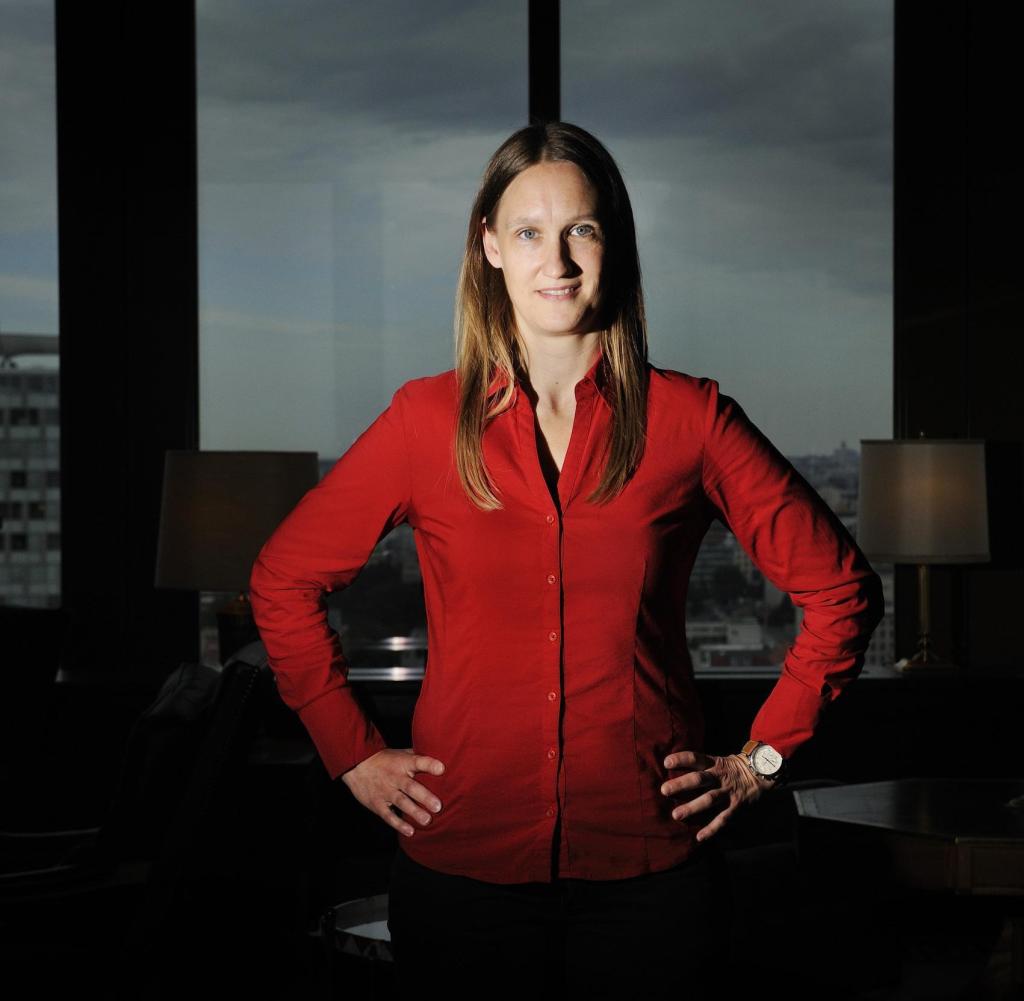
The old diaspora woke up with the revolution in 2011. These Syrians were not engaged politically before. They are settled in northern America and Europe; they are quite wealthy, well-connected businessmen, doctors, engineers who left Syria, mostly during the 1970s and 1980s. Some of them are affiliated or sympathizing with the Muslim Brotherhood, but most of them are not political. They redefined themselves through this revolution because they suddenly were confronted with the fact that they had to take a position in this uprising that concerns their home country. They started to organize humanitarian aid for the Syrians inside the country. There are some very influential medical organizations in the US and in Europe, like the Syrian American Medical Society (SAMS), very big networks. Thus, a whole NGO scene came into being. Never before, a conflict has set up such an active scene of NGO’s from outside the country. They are well connected to the donor communities in the Western countries. They get money from these donors and bring this to help local organizations in Syria. So, they play a very important role in taking care of the Syrians within the country.
In Germany, we have different kinds of activities going on within the Syrian diaspora community. While the old diaspora focuses more on humanitarian aid for Syrians inside Syria and integration efforts for Syrians fleeing to Germany; the new diaspora, the politicized Syrians in Germany -mostly young people, activists, revolutionaries- focus more on explaining the revolution to a German audience and campaigning for ongoing problems that involve German and Syrian politics. So the old diaspora is less political focusing on humanitarian and integration issues while the new diaspora is politically active and still busy with the ongoing conflict and its implications in their host countries.
As you said, Syrian diaspora is a fragmented group of people. But overall, what has been on the agenda of the Syrian diaspora? What were the spotlights, especially of the Syrian opposition groups in exile?
Syria never had an active and prominent exiled opposition until this revolution. I lived seven years in Syria in the early 2000s. The leading figures of the opposition at that time -intellectuals, leftists, secularists, communists, liberals and some moderate religious persons- were completely disconnected from exiled opposition outside the country. They would say “we want to reform this system from inside. We don’t want to be like Iraq”. That was the bad example for them. “We don’t want regime change from outside. We want to make it our own way.” Even for this, many of these figures went to jail under Bashar al-Assad. They stayed in prison for some years, only because they had asked for meaningful political reforms.
There is this misunderstanding about Bashar al-Assad. People saw Bashar as a reformer but he turned out to be a modernizer. He opened the country economically, but he did not change anything politically. You had a lot of trade going on. For instance, Turkey became one of the major economic partners at that time. Bashar al-Assad and President Erdoğan even went on vacation together.
50 years of dictatorship means 50 years of silence, without any public debate or political discourse. Opposition followed the same authoritarian way of thinking that they had grown up with under the Assad rule. Therefore, they could not gain the legitimacy that they would need as an exile opposition to represent the people inside the country.
These economic reforms created a social rift in Syria; the scissors were opening up between the poor and the wealthy. Some people could make a lot of money with this neoliberal economy, and, other than before when this elite had to go to Beirut and Dubai to spend its money, now they could buy expensive stuff and show their wealth in Damascus. On the other side, there were the ones with regular jobs who did not have money to invest. They were stagnating and felt neglected by the regime, especially in the countryside and the suburbs of the big cities. Previously, everybody was kind of the same. Under Hafiz al-Assad, there was a social contract between him and the Syrians implicating that if you keep quite politically, I will take care of you economically. For decades, the people were oppressed and deprived of their freedom but they had enough to live and everybody was in the same boat. Bashar broke this deal. Ordinary people -state employees, workers, farmers, craftsmen and owners of small shops- no longer felt they could make a decent living and build a future for their children. They had to struggle in their daily lives while at the same time watching how some businessmen close to the president enrich themselves shamelessly. By doing this, Bashar himself laid the ground for the uprising because in 2011, after ten years under his rule people felt let down. Hafiz, the father had always taken care of them. Yet, Bashar, the son only served an elite. So why would the Syrians shut up anymore? Why should they keep quiet and accept this authoritarian rule? Too many people had nothing to lose and therefore rose against the regime.
The ones who from the beginning put more effort, more money and energy were Saudi Arabia, Qatar and Turkey. So, the Islamists gained the upper hand both within the country and the opposition. The fact that the Syrian opposition seems more Islamist today has to do with these external actors that want some form of political Islam within Syria.
But the opposition figures inside Syria were disconnected from the people. They didn’t have a lot of supporters or a popular base among the disadvantaged sections of society. So, they were surprised when the protests started. They wanted to be part of it. Some of them went underground, some others left the country trying to support and represent this revolution outside. This is how the many organization efforts started.
How did these organization efforts of the opposition result?
Within the Syrian opposition, there are people of different tendencies; there are Muslim Brothers, secular, leftist, conservative, nationalist and liberal people like everywhere. But in the Syrian case, they had never really discussed what they wanted politically. 50 years of dictatorship means 50 years of silence, without any public debate or political discourse. They needed time to find out what they wanted, to know and trust each other. Many of them had never met previously. It took them more than one year to organize themselves. So they started to form different organizations, platforms, coalitions, but all these efforts failed because basically Syrian opposition figures were unable to compromise and work together effectively. They repeated the same mistakes, they followed the same authoritarian way of thinking that they had grown up with under the Assad rule. Therefore, they could not gain the legitimacy that they would need as an exile opposition to represent the people inside the country.
From the perspective of most Syrians living in the regime-held territories, there is no viable alternative to the Assad regime. This is the biggest problem because whoever you ask, Christians, Alawis, even Sunnis, they say “we don’t know what comes after him, so let’s stay with the devil we know”.
This reminds me of what had happened in Iraq. After the fall of Saddam Hussein many Iraqi refugees that I met in Istanbul told me that “before there was only one Saddam, but now there are one thousand Saddams and it is much more complicated”.
Yes, but the Iraqi experience is different because the Americans toppled Saddam and they put Ahmed Chalabi from outside the country. This is what the Syrians did not want. They wanted change from inside, by a homegrown opposition. But it didn’t work out. And the influence of foreign powers made things worse because none of them supported and protected the unarmed resistance and the civilian population resolutely enough. Everybody only searched for allies within the opposition groups. Obviously, the Europeans and the Americans looked for more secular ones; Qatar and Turkey focused on the Muslim brotherhood; Saudi Arabia on other conservative forces within a political Islam. This is how Islamists grew stronger because Europe and the US were not really ready to invest. The West supported the opposition by financing conferences, talking a lot about human rights and democracy. But they refused to protect what they demanded politically. In the liberated areas, they supported local councils, they built hospitals, financed schools and women centers. But whenever these places were bombed by the Syrian or the Russian Air Force, they did not protect them. All the people who relied on Western aid felt betrayed.
The ones who from the beginning put more effort, more money and energy were Saudi Arabia, Qatar and Turkey. So, the Islamists gained the upper hand both within the country and the opposition. The fact that the Syrian opposition seems more Islamist today has to do with these external actors that want some form of political Islam within Syria.
The Syrian opposition until today is caught up in the two ideologies of the 20th century, nationalism and Islamism. You have people who play the Arab nationalism card which is a main problem for the Kurdish population. And you have the Islamists who neglect the fears and interests of other sects. In September 2016 the opposition agreed on a document that outlined in detail a political transition to a democratic and pluralistic country. But the paper stresses the “Arab-Islamic character” of Syria which degrades all other religious and sectarian groups like Christians, Alawites and Druze. And which makes any agreement with the Kurds very difficult. If you want to build a pluralistic society and an inclusive government, you have to change this attitude. It has to be possible that a Christian woman or a Kurdish woman becomes the president. That’s something hardly acceptable within the Itilaf until today.
Most Syrians define themselves as part of a local community, as a Sunni from Aleppo, a Kurd from Qamishli, an Ismaili from Salamiyeh, an Arab from Deir ez-Zor, a Christian from Seidnaya, a Druze from Sweida. They do not feel that they belong to a Syrian state that respects and unites them as equal citizens.
There’s a new generation of Syrians who struggle with themselves to develop an inclusive Syrian identity. But for people who have lived for decades under a dictatorship that promotes Arab nationalism while persecuting any form of Kurdishness and political Islam, it is very difficult to embrace a modern understanding of citizenship. Most Syrians define themselves as part of a local community, as a Sunni from Aleppo, a Kurd from Qamishli, an Ismaili from Salamiyeh, an Arab from Deir ez-Zor, a Christian from Seidnaya, a Druze from Sweida. They do not feel that they belong to a Syrian state that respects and unites them as equal citizens.
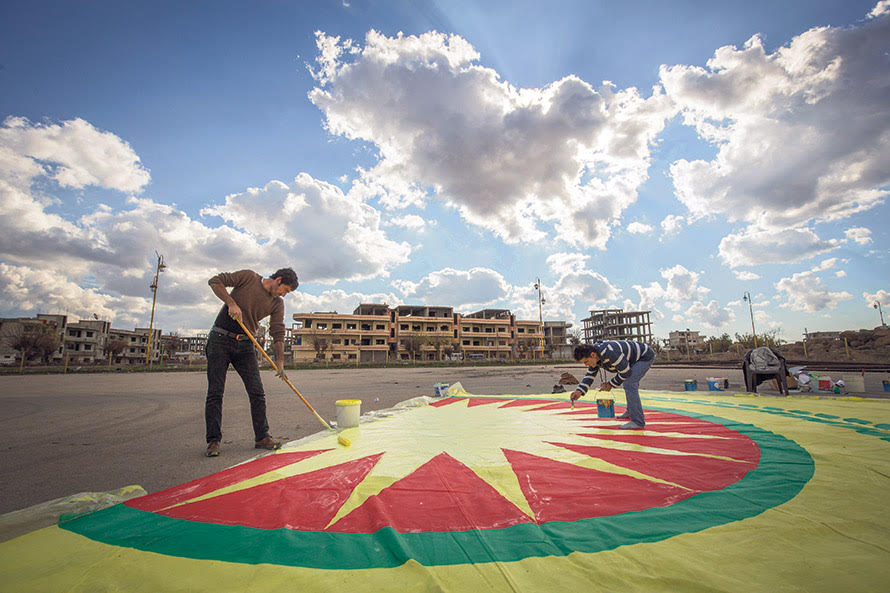
You have mentioned the role of foreign states like Turkey and Qatar in the Syrian conflict. What would you say about the role of other international actors, like Russia, Iran, the UN and the EU?
The international community could not find a common position on this revolution and the violent reaction of the Assad regime. The United Nations Security Council was divided from the very beginning. Russia had decided that he would keep Bashar al-Assad in power, no matter what it takes after the experience in Libya. There, a NATO intervention clearly overstretched its mandate to protect civilians by toppling the Gaddafi regime. Vladimir Putin decided that this will not repeat itself in Syria.
Putin wanted to keep a foot in the Middle East, after the Americans had used the decade before to control almost all Arab capitals. For Russia, Damascus was the last ally in the region. In Tartus, they have a marine base at the Mediterranean Sea which is geo-strategically very important for them. To keep the regime in power is not so much about the person of Bashar al-Assad though. Russia just needs an allied central state with an authoritarian apparatus that keeps the country together and under Moscow’s control.
For the Iranians, in turn, Bashar al-Assad himself is important because the Assad family protects Iranian interests in Syria since there is no large Shiite community Teheran could rely on. Unlike in Iraq or Lebanon, where about a third of the population is Shiite and Tehran has successfully built up proxies such as Hezbollah and Hashd al-Shaabi. In Syria, they need Assad to maintain and expand their influence.
The UN completely failed in Syria. The Security Council was paralyzed. Humanitarian wise they try to help the people, but it is Bashar al-Assad and his cronies who benefit as the regime decides who delivers and gets the support. The humanitarian aid is politicized to a degree that we have not witnessed before. The UN have to work with authoritarian regimes here and there. But in Syria, Bashar al-Assad is using this humanitarian aid to build up and strengthen his power. This has been ongoing for more than 11 years now. 80% of the UN emergency aid is financed by the West, Germany is one of the biggest bilateral donors. The fact that big parts of this aid go to organizations close to the regime that are sanctioned by the EU and the US, is a scandal.
President Erdogan was focused on the idea to topple the Assad regime and whoever would help in that was welcome, even jihadists. The Islamic radicalization of the uprising was also very much in the interest of Assad, because he needed an enemy that looked worse than the regime. And it was with the help of the Turkish government, the Saudis and the Qataris that this development happened.
If you look at all the foreign players and how they have dealt with Syria, the biggest difference is between countries that knew what they wanted and followed this strategy from the beginning until today. This is why Russia and Iran were successful in what they did. They knew exactly why they were there and they would do anything to reach their goals. On the other side there are powers like the US and Europe, who didn’t really know what they wanted and never had a strategy. They were enthusiastic about the revolutions in 2011, Mubarak had resigned in Egypt, Ben Ali in Tunisia had left. So, the Europeans were following a kind of wishful thinking, believing that the Assad regime would be toppled within months. They were just waiting without developing a strategy. Their activities were half-hearted all the time. For years, the Syrians on the ground were demanding protection from aerial bombardment, but the US and Europe refused to implement a no-fly or protection zone in northern and southern Syria.
Then, when the Islamic State rose in Syria, and carried out attacks in Europe, for example in Paris in November 2015, they immediately decided that they would go and attack cities in Syria that were under the control of ISIS. What kind of message is this? The Europeans insist on a Security Council resolution to protect civilians, but they go and bomb cities without a UN mandate, when it is war against terror. From the Syrian point of view, this is pure hypocrisy. And it has cost the Europeans a lot of credibility. Above all, civil society felt abandoned.
There is a strong belief in Turkey, in particular among the secular segment of society that Syrian diaspora organizations are all Islamist, if not jihadist. Is it true?
I’m not an expert for the Syrian community in Turkey. The majority of Syrians who fled and live there are conservative Sunni Muslims, but they are not radicals. Islam in Syria was a conservative kind of Islam. It was not politicized, because the government had eradicated the Muslim Brotherhood in the 1980s. So, it was a traditional Islam, which might not be very different from the Turkish conservative Sunni Muslims.
But the opposition, as I mentioned, definitely turned towards a political Islam, with the support of the Turkish and Qatari governments. At the beginning, President Erdogan was focused on the idea to topple the Assad regime and whoever would help in that was welcome, even jihadists. He underestimated the danger that grew out of this kind of jihadi groups. There’s a difference between Syrian Islamist rebel groups and the jihadist groups who have an international agenda. How could jihadist fighters from all over the world join ISIS in Syria? Through the Turkish border, which at the time was open to any kind of support for Islamist groups.
If Assad takes control of all of Syria where should the 4 million civilians go to? The people in Idlib cannot live under Assad rule, they have fled his secret service already. There would be another influx of people into Turkey, which nobody wants. And if Assad controls the border area, where can Erdogan resettle the one million Syrians that he promises to send back?
This also helped Bashar al-Assad because he needed an enemy that looked worse than his own regime; with ISIS controlling parts of Syria, many argued that Assad was the lesser of two evils; Assad could pretend that he is protecting minorities and saving Syria from terrorists. And the West would say, “Assad is only killing Syrians, while ISIS is also killing Europeans and Americans”.
In general, the Islamic radicalization of the uprising was very much in the interest of Assad. And it was with the help of the Turkish government, the Saudis and the Qataris that this development happened. The Western countries let down the rebel groups that were more moderate in the beginning. They did not get the funding and support that they would have needed to meaningfully fight the Assad regime.
In August, we heard Turkey’s messages for rapprochement with Syria. Turkish president Erdoğan no longer talks about ousting Assad. This change of attitude makes the Syrian opposition as well as the refugees in Turkey anxious about a forced repatriation. How do you evaluate this changing attitude? How is it perceived by Syrian diaspora organizations?
President Erdoğan is famous for his 180-degree turns. He’s the one who started the negotiations with the PKK. Then after losing his parliamentary majority in the June 2015 election, he turned against the Kurds and made them the main enemy to unite the Turks behind him. That’s at least how it looks when you observe Turkey from afar. In Syria, we see this kind of turnarounds, too. Turkish policy towards Syria doesn´t follow a long-term strategy, but is rather built on tactics. Over the course of the last 11 years, Ankara has adjusted its policy towards Syria in a very clever way. At the beginning it was Assad, then you had ISIS and the Americans gave weapons to the YPG which they consider an ally in the fight against terror until now.
This made the Kurdish issue the focus of President Erdoğan. This is the reason for the war in northeast Syria. Military interventions in this area have displaced hundreds of thousand people, mainly, but not only, Kurds. In order to legitimize these operations, which do not comply with international law, and make them look like a Syrian-led liberation, some opposition figures were placed in Turkey’s protectorates, and Syrian rebels were turned into Turkish mercenaries fighting against the YPG and the PYD in Syria. This is a very sad decline from former freedom fighters who were celebrated for protecting demonstrators against the Syrian regime to extremists who are financed by Turkey to kill their fellow countrymen because they are Kurdish. A lot of people in Syria perceive the Syrian National Army as a group of mercenaries who follow Ankara’s orders and their personal interests only.
Actually, Erdoğan’s words to open up to Bashar al-Assad do not come as a surprise because for him it is better to have Syrian regime soldiers at the border, than YPG fighters; it’s better to work with Damascus than having to deal with the Autonomous Administration of North and East Syria (AANES).
But obviously, Erdogan’s demand that “the Syrian opposition has to reconcile with the Syrian regime” is unbearable for any Syrian opposition figure who has lived through Assad’s crimes since 2011. They feel betrayed by Turkey because they thought that Ankara would support them in their wish for regime change.
I’m skeptical though that this will lead to a rapprochement anytime soon because Bashar al-Assad feels reassured by the fact that several regional countries are normalizing their relations with Damascus. He is therefore demanding that Turkey withdraws all its troops before starting any official talks.
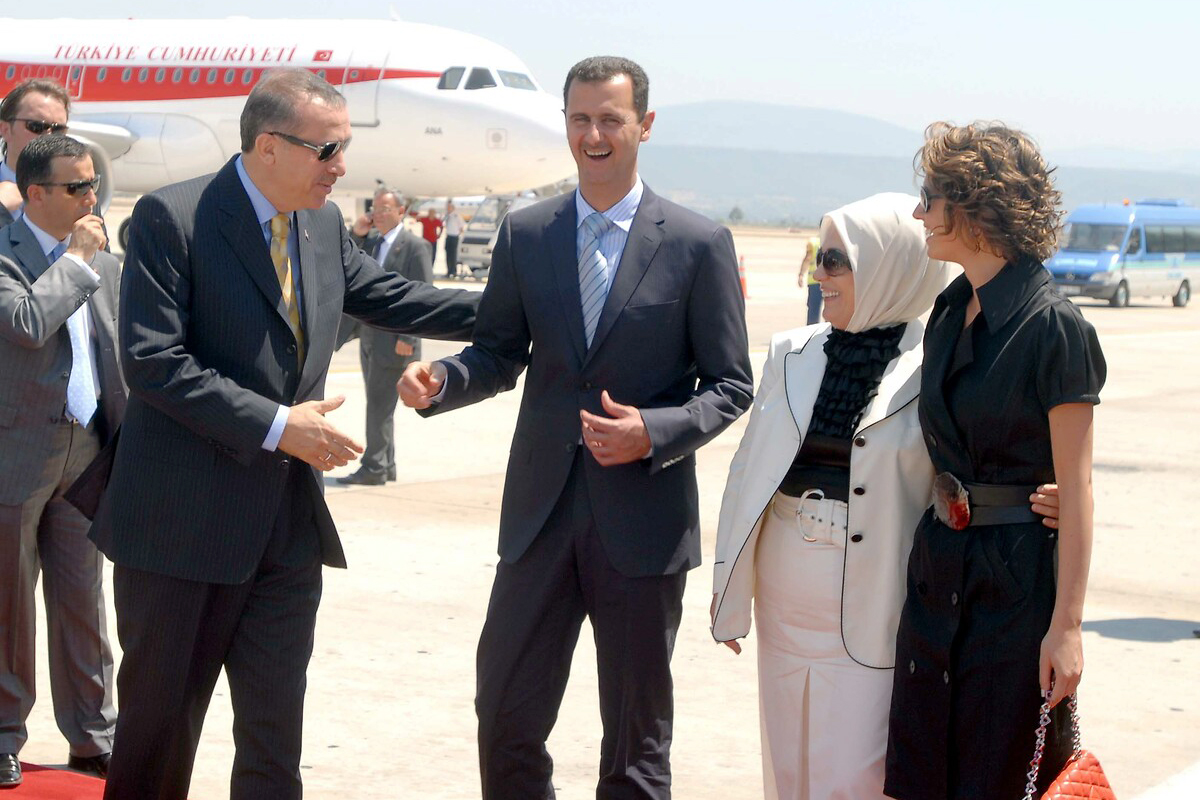
Is it an authentic demand or just a rhetoric discourse?
I think Assad means it. In the sense that he will not open formal contacts without Turkey withdrawing its troops. But the two countries obviously hold secret talks on security issues and this could develop into some kind of military cooperation. Assad could “legalize” the Turkish presence, both could jointly fight the YPG and smash the AANES that would be taken over by the regime.
Will this solve the refugee problem?
This doesn´t solve the refugee problem. If Assad takes control of all of Syria – including Idlib in the northwest – where should the 4 million civilians go to? The people in Idlib cannot live under Assad rule, they have fled his secret service several times already. There would be another influx of people into Turkey, which nobody wants. And if Assad controls the border area, where can Erdogan resettle the one million Syrians that he promises to send back? If Bashar al-Assad takes over Erdogan’s so called 30-km-security zone, hardly any Syrians will go back because the vast majority of them fled from the regime. This is the problem within the whole thinking. Yes, Ankara and Damascus can fight the Kurds together based on the Adana agreement of 1998. But in reality, if the idea is to send Syrian refugees back to Syria, the majority of them will not go back if Assad takes control over the north.
Isn’t there any possibility that Assad accepts the returnees? Because part of the discourse is that not all the Syrians are fleeing from the oppression of the Assad regime, but they took refuge in Turkey just because of the generalized conflict in the country. This account portrays refugees without directly blaming Assad regime.
Assad is only interested in loyal and wealthy Syrians. He wants people to submit themselves under his rule and bring money to the country. He is not interested in anybody who comes from former opposition held territories and who questions his power. Any Syrian whose identity card shows that he used to live in an area that was controlled by opposition forces, is in danger because the secret police assumes that he was against the regime and can arrest him anytime.
The return of refugees is supposed to be secure, voluntary and in dignity. That’s what the UN say. What we see until now is that several thousands of people return to Syria, mainly from Lebanon, because they are forced to do so and because their life in Lebanon is unbearable. The circumstances are so bad that they cannot take it anymore. Children don´t go to school, they have no legal status, they can´t work, they are being mistreated and persecuted, so they don´t see any perspective for their families. These Syrians feel lost and some of them decide to go back home no matter what happens. They say I prefer to die in my home country then living in this deprived way in Lebanon. Is this a voluntary return? I don’t think so. We have several reports from human rights organizations about people who disappeared and who were imprisoned after their return to Syria. There is no security under the Assad regime.
What people in Western Europe do not understand is that while they talk about sending people back to Syria, the majority of Syrians inside the country think about fleeing the country. Another reason to be afraid of in northeast Syria is the resurgence of ISIS that has not disappeared but gone underground. Therefore, people think about how to flee the country. So, this is not the moment to talk about the repatriation of refugees.
What people in Western Europe do not understand is that while they talk about sending people back to Syria, the majority of Syrians inside the country think about fleeing the country. The focus of our policy should be how to help the Syrians inside the country to stay where they are. We should manage to give people a reason to stay, put them in dignified living conditions so that they do not leave the country. In the northeast for example, people fear Turkish incursions. There is a war of low intensity going on as Turkey is targeting Kurdish representatives with drones. These attacks create a feeling of constant fear among the population as the drones kill civilians, too. Another reason to be afraid of in northeast Syria is the resurgence of ISIS that has not disappeared but gone underground. Therefore, people think about how to flee the country. They collect money to be able to leave at any time. So, this is not the moment to talk about the repatriation of refugees. Instead, foreign donors should improve the living conditions in Idlib, they should stabilize the northeast by investing in infrastructure and agriculture, and Turkey should stop its attacks and realize that the AANES is not a threat for Turkey.
Many opposition parties in Turkey are believing that they can negotiate with Bashar al-Assad and that they can convince him to accept the refugees back home. What do you think about these arguments? Can Turkish opposition parties convince him for repatriation? The second option they propose -if they fail to convince Assad- is to send the Syrian refugees back to the northern Syria which is controlled by Turkey. Are they viable proposals?
Let’s start with the last part. Turkey plans to send people back to compounds within the areas that Turkey captured in three military operations: the area north of Aleppo in 2016, Afrin in 2018 and the region between Tel Abyad and Ras al-Ayn in 2019. A repatriation campaign would cause a demographic change in these parts, because Turkey would send Arabs back to places that were inhabited mainly by Syrian Kurds, but also Yezidis and some Christian Arabs. This would create social unrest and more tensions within the Syrian society that is already deeply divided after 11 years of war. The whole resettlement would be counterproductive and could therefore backfire. Plus, it’s against international law to demographically change the population of an area by displacing the original inhabitants and settling others.
Let’s talk about Turkish opposition parties’ suggestion to negotiate with Bashar al-Assad about repatriation. What Assad wants and what he really needs right now is money. Whenever there are Syrian refugees who come with a lot of money and who accept to obey his rule he will happily let them in. For example, imagine a businessman from Aleppo who relocated to Gaziantep some years ago and has built up a new business. Now he worries about the hostile climate in Turkey, he feels unsecure, fears for his family and thinks about going back to Aleppo. He has contacts there and money to reinvest and he is willing to pay about 7,000 euros to have his son exempted from military service. This Syrian family might return. But how many are in such a position?
Syrian Kurds are reclaming for a federal system, a self-administration, autonomy and this is something that Bashar al-Assad does not want to give them. If Assad makes peace with any Turkish Government, this would be a gradual end of this autonomous administration. For Erdogan it’s better to have Syrian Arabs along the border than Kurds because he is constantly afraid that this idea of autonomy will spill over into southern Turkey.
The main goal of the regime is to extract as much money as possible from the Syrians. The military service is the main problem for young Syrian men; they do not want to be conscripted but they don´t have the money to pay the exemption fee. So, if Turkey is ready to pay 10.000 Euro for every refugee that Bashar takes in, he might agree, but this won´t happen. And it would still endanger many returnees as under Assad’s rule, there are no guaranties but checkpoints everywhere. Anything can happen anytime. People are still being imprisoned, there is systematic torture in the detention centers, more than 100,000 people have disappeared. Syria under Assad is a place of ongoing crimes against humanity. Even if aerial bombardments have decreased, this doesn’t mean that Assad and his regime turned any better. People in Syria are living in constant fear.
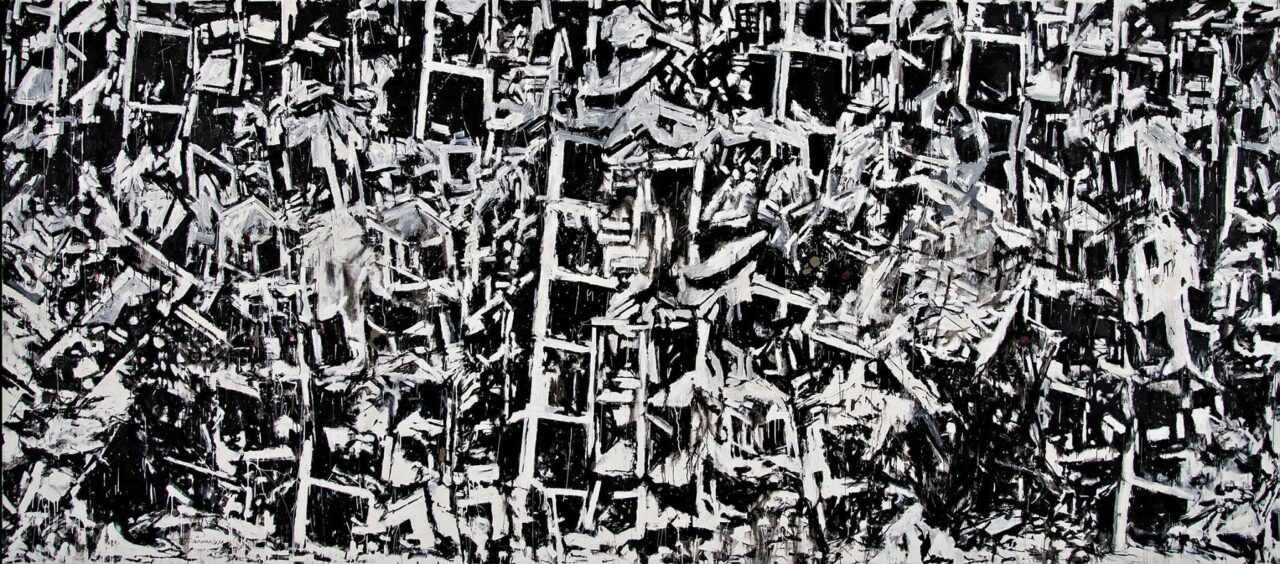
If Erdoğan makes peace with Assad what does the future hold for Syrian Kurds?
First of all, we have to differentiate again. It’s always more complicated than what it sounds. North and East Syria is governed autonomously, but it’s not a Kurdish project only. The Autonomous Administration of North and East Syria doesn’t consider itself a Kurdish project or Rojava project because Rojava only consists of the three cantons along the border – Afrin, Kobane and Cizire – one of which, Afrin, is already under Turkish occupation. In fact, the AANES controls almost a third of Syria including Arab regions in Deir ez-Zor, Raqqa and parts of Hasaka. The AANES is trying to build a “democratic confederalism” with all the different ethnic and religious groups in the area. The project is following the idea of Abdullah Öcalan who has been promoting autonomy and not Kurdish statehood for a long time. This is the ideological connection between the AANES and the PKK but Syrian Kurds do not question the Syrian state; they do not demand to be independent. The Kurdish vision for the 21st century is to accept the borders in the Middle East and establish autonomy within the different states, in Iraq, Syria, Iran and Turkey.
Now does this work in North and East Syria? Is there engagement on the communal level to guarantee a bottom-up approach, are there women and men sharing responsibility in leading positions, are all ethnicities and sects represented and are they allowed to speak and teach their languages, Kurdish, Arabic, Aramaic? Yes, to a large extent. If you compare the Northeast to the Assad regime areas, it is a lot better because there is more freedom and less oppression. There are about 200 NGOs that can work not only on humanitarian issues but also on dialogue and social cohesion, on environmental problems, women empowerment and the role of the youth. So, a lot of things that are important to European politicians can be implemented in North East Syria, because the AANES is open for this.
The main problem is that the self-administration is still very much influenced by the PYD. When you have one party controlling such a project, it cannot be democratic. For me, the crucial question is whether the AANES can liberate itself from the PYD influence, and whether the PYD can be further Syrianized and delinked from the PKK. This would also help Turkey to be less afraid of it, because I do not see any danger emanating from northeastern Syria in the direction of Turkey. The Syrian Kurds do not want to attack Turkey, they do not want to become independent. They want to build something that is better than what they experienced for decades under Assad’s rule. They are asking for a federal system, a self-administration, some autonomy and this is something that Bashar al-Assad does not want to give them.
Now the economic power is very much concentrated in the hands of the president and his wife. Assad uses the UN aid system for maintaining his power, he benefits from high black-market prices due to sanctions, he generates revenues by the production and trade with synthetic drugs like Captagon.
What will happen if Assad and Erdoğan make a deal? If Assad makes peace with any Turkish Government, this would be a gradual end of this autonomous administration. Assad never completely left the area. There is a negotiation process between the AANES and Damascus because the self-administration needs an agreement with the regime to get more international recognition and support. But Damascus is not willing to compromise on anything. They don’t want to hand over any power to a local authority. Assad wants the complete control over the area. So, the talks are in a deadlock.
If Bashar al-Assad feels empowered by a deal with Turkey to reinstall his rule in the North East, he will do so and thereby destroy the AANES. Not with military force, but by a creeping takeover of the administration and the security forces.
What will be the international reaction if Turkey repatriates Syrians in the North?
For Erdogan it’s better to have Syrian Arabs along the border than Kurds because he is constantly afraid that this idea of autonomy will spill over into southern Turkey. Yet, this would be a very bad idea because of the severe consequences for the Syrian society I already mentioned. But I’m not sure whether there would be a lot of international protest or critique. For example, there are UN reports of crimes committed in Afrin in violation of international law, either by Turkey or by the Syrian National Army, supported by Turkey. The UN has documented looting, dispossession, the mistreatment and rape of civilians, and the destruction and desecration of religious sites. European politicians keep silent because they find Erdogan functional to stop refugees and as a mediator with Russia in the Ukraine war. And the NATO needs Erdoğan to agree on the membership of Sweden and Finland, a leverage he is using to force Sweden to conform its policies to Turkey’s definition of terrorism and to expel Kurdish dissidents Ankara considers terrorists. Therefore, Erdogan feels very strong and that he can get away with a lot of things.
In the UN talk that Erdoğan gave recently in New York, he asked the international community to support him to build new houses in northern Syria for the refugees.
It is really important to explain to European politicians how catastrophic this will be for the Syrian and especially for the Kurdish population. Yet for the Europeans, resettling Syrian refugees sounds very good. Every step in this direction has to consider housing, land and property rights.
Here is my last question. You have published a book in German called “The Syrian War: Resolution of a World Conflict”. The Syrian war has been a catastrophe for the Syrian people, as you described so far, for the ones who left their homes but also for the ones who stayed. It has also been challenging for the host societies like Turkey, Lebanon, Jordan. Are we close to the end of this global conflict? To what directions will this conflict evolve into in the near future for both Syrian people and its neighbors?
I think the Syrian conflict will keep on occupying us in all senses. It’s a humanitarian disaster, and it will stay so. It’s a conflict that will not be resolved politically anytime soon. It’s a conflict that is already decided militarily because Bashar al-Assad has, with the help of Russia and Iran, regained control over vast parts of the country. It’s a conflict with frozen frontlines but ongoing underlying dynamics. I mentioned ISIS, for example, resurging and reorganizing itself. So, it’s a crisis, simmering on low heat.
The most probable scenario is that everything stays the way it is, which means that you have this catastrophic humanitarian situation and economic crisis in a divided country. I don’t think Assad is going anywhere anytime soon. He is dependent on Iran and Russia, but at the same time relying on the security apparatus and some wealthy businessmen that help him to survive. By now, the economic power is very much concentrated in the hands of the president and his wife. Assad uses the UN aid system for maintaining his power, he benefits from high black-market prices due to sanctions, he generates revenues by the production and trade with synthetic drugs like Captagon; he is also making money with the embassies in Europe; the Syrian Embassy in Berlin, for example, earns millions of euros from the fees Syrians have to pay to renew their passports. So, there are several sources of income that allow Assad and his regime to survive, while keeping Syrians in their humiliating conditions.
The big question that we have to ask ourselves is how to help the Syrians inside Syria without supporting the regime. This is the big question that is being constantly asked in Europe. We have to be frank to ourselves and realize that the conflict will not be over anytime soon by political means. Therefore, we need to find ways to manage the crisis so that the people on the ground in Syria are better off, so that we can help them more effectively. And to do that, we need to develop a distinct approach for each of the three different parts of Syria.
In regime areas, it is long overdue to put pressure on the UN agencies in Damascus. They have to establish plans and distribute aid accordingly, because humanitarian aid has to be neutral, independent and impartial. And this is not the case in Syria. For northeast Syria, I would recommend direct investment and support for agriculture, infrastructure and environment. If you don´t want to work with the autonomous administration directly, you can help the region through NGO’s. In Idlib, donor countries and the UN should join forces and negotiate a clear framework for aid in the northwest with Hayat Tahrir al-Sham (HTS), the extremist group controlling and de facto governing the area with Turkish consent. The idea is not to legitimize HTS, which is internationally classified as terrorist, but about supporting the valuable work of civil society partners – in the interest of the people of Idlib.
This turnaround in dealing with Syria requires knowledge of local conditions and determination. If this does not succeed, the billions paid by the West will further consolidate Assad’s power and impoverish the poorest. Young people will make their way to Europe or join extremist groups. If we want to prevent more refugees and another ISIS, we must finally ensure that aid in Syria reaches the people who need it most.






